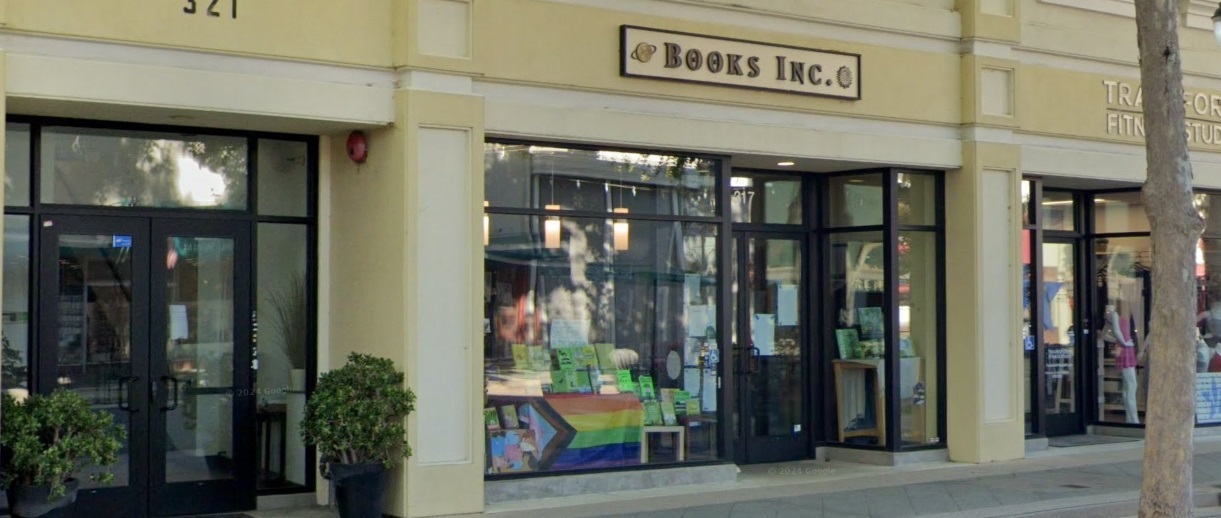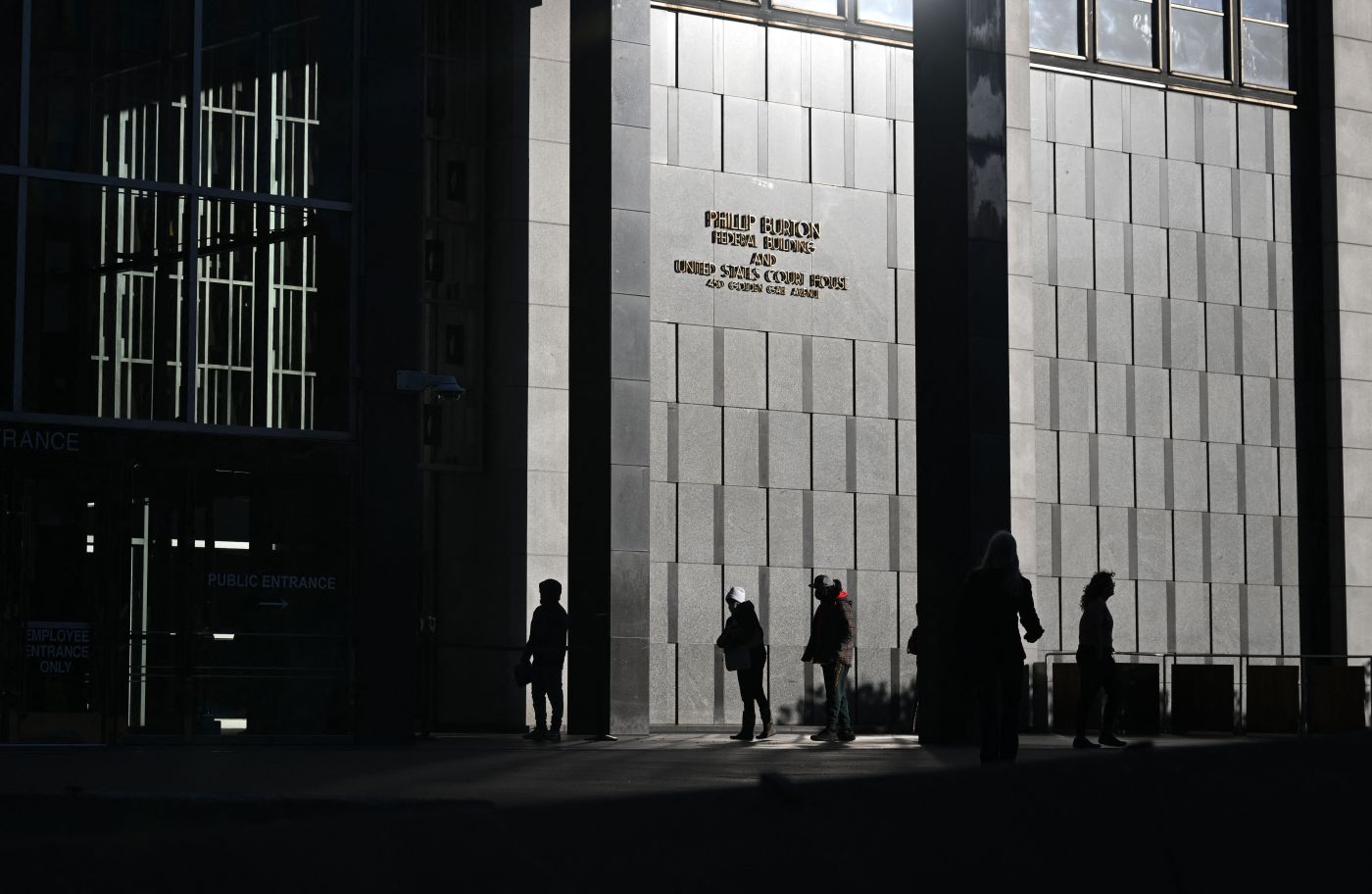Books Inc., a Bay Area bookseller whose roots stretch back to the 19th century, says it has found a buyer, but warns it might be forced to cease operations if the last-ditch attempt at a sale fails.
Barnes & Noble Booksellers, a retailer that itself has closed some stores, has emerged as the sole candidate to buy Books Inc., according to documents on file with the U.S. Bankruptcy Court. Barnes & Noble agreed to pay $3.25 million, according to a letter of intent dated July 7.
Books Inc. store at 1491 Shattuck Avenue in Berkeley. (Google Maps)
The potential purchase appears to be an all-or-nothing gambit to survive, a court filing by Books Inc. Chief Executive Officer Andrew Perham indicates. Books Inc. filed for bankruptcy in January.
“If the proposed sale is approved, it will pay the debtor’s secured, administrative, and priority claimants in full and will provide for a meaningful distribution to unsecured creditors,” Perham stated in court papers posted on Sept. 3. “Without court approval of the proposed sale, the debtor would likely need to shut its doors and begin a wind-down process.”
Books Inc. has scouted widely for buyers but with minimal success.
“The debtor received a nonbinding offer from Barnes & Noble Booksellers,” Perham reported to the bankruptcy court. “The debtor has received no other offers and only a limited number of inquiries, despite continued efforts to solicit other interested buyers.”
Books Inc. told the court that its origins date back to 1851 and that the company has operated under its current name since 1946.
The bookseller operates in 10 brick-and-mortar retail locations in a variety of Bay Area venues, including shopping centers and two locations at San Francisco International Airport.
“The debtor’s financial troubles can be traced to the COVID-19 pandemic, which caused a sharp decline in sales due to shelter-in-place orders and social distancing mandates,” Perham stated in the court papers. “Although public health restrictions have ended, the pandemic triggered long-term changes in consumer behavior that reduced in-person sales.”
Foot traffic from office workers and commuters had always provided an essential revenue stream for Books Inc.
“The shopping patterns of these groups shifted significantly due to the widespread adoption of remote and hybrid work models, resulting in decreased foot traffic and revenue at many of the debtor’s retail stores,” Perham told the court.
Books Inc. was able to use the Chapter 11 bankruptcy proceeding to begin reorganizing its finances by successfully renegotiating its leases to reflect the new reality of reduced foot traffic.
“Despite the debtor’s progress in negotiating with its landlords, two setbacks arose,” Perham reported to the bankruptcy court. “Both involved the debtor’s SFO Airport storefronts in Terminals 2 and 3, which have historically been the debtor’s top-performing locations.”
American Airlines moved its flights to the newly renovated Terminal 1. While Southwest Airlines increased flights from Terminal 2, that wasn’t enough to offset the loss of the American Airlines passenger business, Books Inc. stated in the filing.
SFO has also launched a wide-ranging construction project at Terminal 3, which has crimped the Books Inc. business at that terminal due to construction barriers and the re-routing of potential customers away from the store.
“The impact of these challenges has been significant,” Perham told the court. “The sudden decline in sales at these SFO Airport locations, which have typically been the debtor’s highest-earning stores, has severely constrained the debtor’s cash flow.”
Books Inc. believes it could have survived independently had the SFO changes not occurred. Now, however, the retailer believes only a sale can prevent a collapse of its business. Even worse, Books Inc. might not survive long enough to complete a full-fledged reorganization effort.
“The debtor does not have sufficient cash flow to continue operations for enough time to establish, solicit, and confirm a Chapter 11 plan,” Perham told the court. “It is incurring monthly operating losses and faces a risk of insolvency if it cannot promptly pursue an alternative strategy.”
Books Inc. believes its brand won’t vanish even if it sells itself to Barnes & Noble. Perham noted that in 2024, Barnes & Noble bought the Tattered Cover bookstore chain in Colorado that had toppled into bankruptcy.
“Barnes & Noble kept the Tattered Cover name, branding, and most of its employees, and operates the stores in the spirit of their previous owner,” Perham said.





